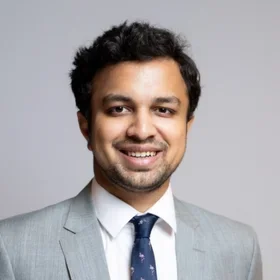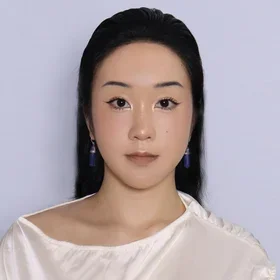by Nick Schiff
As an undergraduate at Barnard College and a researcher at Columbia, Ali Schulz (‘19SPS, Bioethics) was fascinated by the brain. Before becoming a physician, she wanted more time to explore her interests. We discussed how her training in the Bioethics master’s program drove her to pursue new research and policy work—and helped her distinguish herself in med school applications and interviews.
What was your path to the Bioethics program?
I always knew I wanted to be a doctor. As an undergrad, I studied neuroscience and behavior at Barnard College. There, I started doing research on the brain to inform possible routes for therapeutic efforts for people with mood, anxiety, and post-traumatic stress disorders.
After that, I became really interested in how our brains develop in utero, and worked in a lab at Columbia for several years, where I focused on improving long-term cognitive outcomes for babies that are born prematurely.
Before I started applying for med school, I wanted more time to do research, volunteer, prepare for my MCAT, and separate my application from the pool. I had also developed a strong interest into the ethics of research.
Has anything surprised you about the program?
I knew the program was strong and had heard great things. But I didn’t expect that I would learn so much from my peers like Seth Waldman. My classmates include excellent doctors, researchers, compliance officers, lawyers, pre-med students—and learning from them has added an entire new dimension to my education, and I have no doubt our friendships will continue.
Many of my peers are from other countries or have worked internationally—France, Hong Kong, China—and it was fascinating to learn about other medical systems and infrastructures.
I was also surprised by how much I gained from learning from professors with philosophy backgrounds. It allowed us to ground our medical knowledge in humanitarian and ethical frameworks. The program exposed me to so many important considerations in patient care and healthcare infrastructure that I think are instrumental to medical training, things that are not taught in the traditional pre-medical curriculum.
What else stood out to you?
Our Science for Bioethicists class brought in a fantastic series of guest lecturers every week. The range of speakers showed me how bioethics touches on so many fields and specialties: a researcher from NYU working on psilocybin research and end of life care, an immunotherapy researcher, gene therapy and CRISPR experts, and research ethicists, to name a few.
My Journalism and Bioethics course with Harriet Washington was seriously life-changing. I had never considered myself a writer before, but Professor Washington taught me how to present an opinion and curate a strong argument in an Op-Ed, something crucial to navigating bioethics. I am hoping to submit some of those pieces I wrote in her class to newspapers for publication. She emphasized the power of voice, and the importance of telling stories with truth and conviction.
Finally, my courses with Professor Kuflik were unforgettable. Similar to writing, philosophy was never my strong-suit as my focus in high school and college was mostly science. Professor Kuflik taught me that philosophy is very instrumental in setting up a framework for adjudicating bioethical disputes – it’s not just about deciding which side is right or wrong, but conceptualizing the why and the how, and facing those difficult existential questions.
What did you write your final thesis about?
My final thesis studies methods of supplemental and complementary therapies of care in nursing homes for people with early to mid-stage dementia.
When those patients have emotional problems, they are often administered anti-psychotic medication. I argue that it is more ethical to approach these problems with treatments such as music therapy and horticulture therapy. Although there are barriers to holistic care, my thesis explores how we might implement these low-cost but effective treatments on a national level.
Why did you pursue that thesis?
My grandmother has suffered from Alzheimer's Disease, which is what initially drive me to the neuroscience field - I wanted to understand it. Then, in the Bioethics program we talked a lot about end-of-life and palliative care, which led me to volunteer for hospice this past year. I was simultaneously studying in the program and working with patients who had dementia, and it made me think about give that population better care and quality of life.
Where are you going to medical school?
I am currently enrolled at New York Medical College. I have to say, I’m absolutely certain that the Bioethics program was instrumental in my acceptance.
It was particularly crucial for the MMI (Multiple Mini Interview) process that’s becoming more popular for medical school interviews. During MMIs I was presented with about ten ethical problems and given two or three minutes each to formulate a response. Being able to draw on my training and speak about my thought process really made me confident in speaking to those issues and perform my best on interview day.
Do you know what medical field you’d like to enter?
I haven’t chosen a field yet, but I can say with 100% certainty that the Bioethics program has influenced me to go into a specialty with a public health or public policy component. If you asked me a year ago, I would not have said that. I’ve learned in the program that sometimes the ethical choice in patient care unfortunately yields to the laws and boundaries to care access in our healthcare system. I want to change that.


